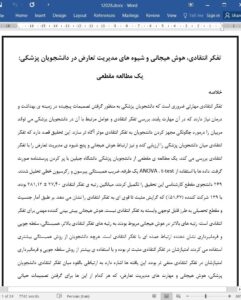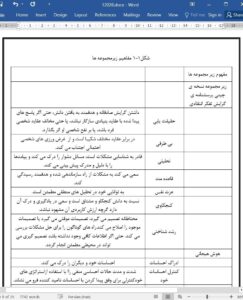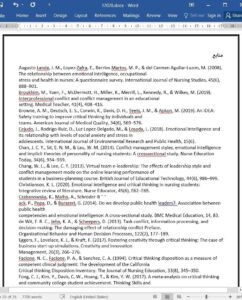Abstract
Critical thinking is an essential skill that medical students need to master due to the necessity of making complex judgments in healthcare settings. Examining medical students’ critical thinking and the associated factors can inform educators on how to equip students for effective critical thinking. This research aimed to evaluate critical thinking among medical students, and the correlations of emotional intelligence and five conflict management styles with critical thinking were also investigated. A cross-sectional study of medical students from the Jilin University was conducted using a questionnaire. Data were analysed using t-tests, one-way ANOVA, Pearson correlation analysis, and linear regression analysis. 269 medical undergraduates completed this study. The mean critical thinking score was 281.12 ± 27.40, with139 participants (51.67 %) indicating positive to strong critical thinking tendency. Gender or year of study was not statistically significantly associated with critical thinking. Emotional intelligence was a significant predictor of critical thinking: higher emotional intelligence scores were associated with higher critical thinking scores. Integration, domination, and compliance showed a significant association with critical thinking. The more students used the integration style, the more positive their critical thinking score was. The more students used the domination and compliance styles, the more negative their critical thinking score was. These findings point to a potential link between medical students’ critical thinking, emotional intelligence and conflict management skills, all of which are needed to make critical clinical judgements, manage their own emotions and the emotions of others and to manage workplace conflict. Further investigation to explore these associations and the role of inclusion of these topics in the undergraduate curriculum is required.
1. Introduction
The development of critical thinking skills has long been considered a priority in higher medical education (Lee, Lee, Gong, Bae, & Choi, 2016). Critical thinking is described as making purposeful and advisable judgments as a result of engaging in a process of analysis, interpretation, evaluation, inference, explanation, and reflection (Halpern, 1998). Studies have demonstrated that academic achievement, problem-solving skills, and clinical competence are positively associated with critical thinking (Fong, Kim, Davis, Hoang, & Kim, 2017; Kanbay & Okanli, 2017). Health professionals need to cope effectively with complex and demanding clinical situations in fast-paced environments. Medical professionals need advanced critical thinking skills to accomplish actions that directly affect patient results (Zuriguel Perez et al., 2015). These actions include analysing patients’ conditions, considering patients’ emotions and weighing possible therapeutic measures, then recognizing which treatment is the most appropriate (Li, Wang, Xu, Li, & Peng, 2017). Therefore, critical thinking is indispensable to medical students.










